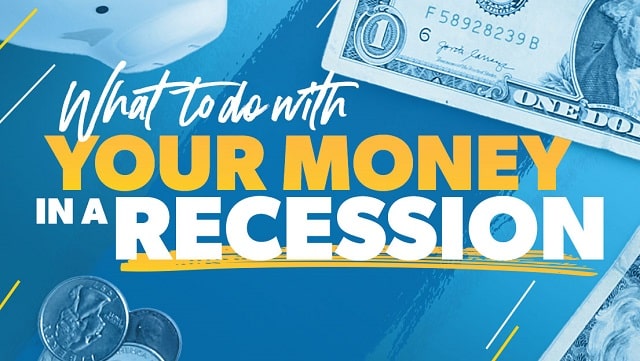
It is no secret that the world is in the midst of an economic recession, with many people losing their jobs and businesses shutting down. In times like these, it is important to be extra cautious with your finances and safeguard your savings as much as possible. Read on for a few tips on how you can do just that with your available money.
What Is A Recession?
A recession is a period of economic contraction, typically defined as two consecutive quarters of negative GDP growth. In the United States, a recession is typically accompanied by a drop in the stock market and an increase in unemployment.
During a recession, consumers tend to cut back and avoid certain things such as purchasing clothes, enjoying table games for cash, or buying video games, which can lead to businesses shutting down and layoffs. This can create a feedback loop of declining economic activity. As such, recessions can be difficult to bail out of without government intervention.
What Are The Different Stages Of A Recession?
Different stages of a recession can be broadly classified into four categories: early recession, mid-recession, late recession, and recovery.
Early Stage Recession - during this phase, the economy is slowing down and unemployment is on the rise. Consumer confidence starts to decline as people become more cautious with their spending. This is usually the shortest stage of a recession.
Mid-Recession - in this stage, unemployment continues to rise and business activity slows down further. This is typically the longest and most difficult stage of a recession.
Late Recession - during this phase, the economy starts to slowly improve but unemployment remains high. This is typically the final stage before the economy starts to recover.
Economic Recovery - the economy has finally started to rebound and business activity has begun to pick up again. Unemployment starts to decline during this phase as more people are able to find jobs.
Tips To Safeguard Your Savings During A Recession
A recession can have a major impact on your personal finances, so it is important to be proactive and take steps to safeguard your savings. Here are a few tips to make the most of your financial situation during recessions:
1. Keep Cash On Hand: During a recession, it is important to have cash on hand in case you lose your job or need to make an emergency purchase. Without liquidating all of your investments (especially retirement accounts), it is important to have an emergency fund of at least 3-6 months of fiat currency. Having cash gives you flexibility and peace of mind knowing that you can cover your basic needs if the economy takes a turn for the worse;
2. Invest In Quality Assets: While it is tempting to sell everything and put your money into cash during a recession, this is usually not the best strategy. Instead, focus on investing in quality assets that will hold their value over time. This could include things like real estate, gold, or other precious metals;
3. Create A Budget: A budget will help you keep track of your spending and make sure that you are not overspending during a time when jobs may be scarce. Make sure to include both essential and non-essential expenses in your budget;
4. Keep Your Emergency Fund Intact: During a recession, you may need to tap into your emergency fund to cover expenses. Make sure you have enough money saved up to cover at least 3-6 months of living expenses as we mentioned earlier;
5. Review Your Budget And Make Adjustments As Needed: A recession can impact your income and spending habits. Review your budget periodically to make sure it still aligns with your current situation;
6. Keep Saving: Even during a recession, it is important to keep saving for the future. If you can swing it, consider increasing your contributions to retirement accounts or other long-term savings goals;
7. Stay Disciplined With Your Spending: This is easier said than done, but it is important to be mindful of your spending during a recession. Make sure you are only spending on necessary purchases and not overindulging in unnecessary luxuries;
8. Keep Your Savings In A High-Yield Savings Account: During a recession, it is important to keep your savings in a safe place where they can earn interest. A high-yield savings account is a great option for this as it offers protection from financial instability while still allowing you to earn interest on your savings;
9. If Possible, Avoid Taking On Any New Debt: During a recessionary period debt can put a strain on your finances and make it much harder to get by financially if you are already struggling;
10. Invest In Yourself: This includes taking courses, networking, and continuing education. There are plenty of free or frugal self-improvement options available. By investing in yourself, you will be better prepared for a recession or anything that comes your way in life.
Safeguarding Savings Solutions
When the economy takes a downturn, it can be a scary time for everyone – especially if you are trying to protect your savings. But by following these tips, you can help safeguard your savings during the recession and come out ahead when the economy bounces back.
Remember, a recession is a temporary setback. So take the time to review your budget, invest in quality assets, and keep your emergency fund intact – and you will be ready for whatever comes next in the volatile economy.
